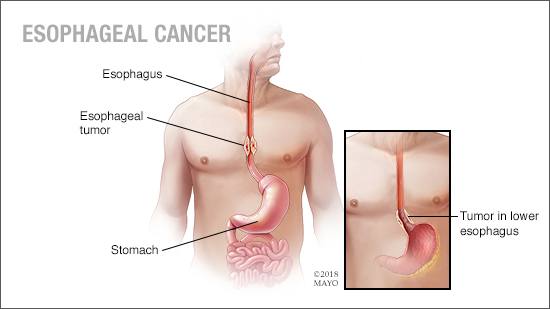-
Cancer
Living With Cancer: Understanding esophageal cancer
 Esophageal cancer
Esophageal cancer
April is Esophageal Cancer Awareness Month, which makes it a good time to learn more about esophageal cancer, the sixth most common cause of cancer deaths worldwide. Signs and symptoms of esophageal cancer include difficulty swallowing, unexplained weight loss, coughing and hoarseness. Risk factors for esophageal cancer include smoking, drinking alcohol, being obese, and not eating enough fruits and vegetables. Learn more about steps you can take to reduce your risk and when you need to see a health care provider.
Preventing nausea and vomiting from chemotherapy
Nausea and vomiting are common side effects of chemotherapy treatment for cancer. Chemotherapy drugs are classified into four categories based on the likelihood they will cause nausea and vomiting: high, moderate, low or minimal. Whether a drug will cause nausea and vomiting also depends on the amount you receive. In addition, there are personal factors that may increase your risk. Here are some strategies you and your health care provider can use to prevent the nausea and vomiting that chemotherapy can cause.
Leukemia: Diagnosis and treatment
Leukemia is cancer of the body's blood-forming tissues, including the bone marrow and lymphatic system. Many types of leukemia exist. Some forms of leukemia are more common in children. Others occur mostly in adults. Treatment depends on many factors, including your age and overall health; the type of leukemia you have; and whether it has spread to other parts of your body, including the central nervous system. Find out more about treatments for leukemia.







